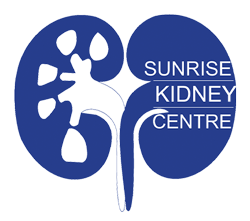Pediatric Nephrologist in Vijayawada
Pediatric nephrology is a specialized branch of medicine focused on diagnosing and managing kidney-related disorders in children, from neonates to adolescents. It encompasses a wide array of conditions, including congenital anomalies such as hydronephrosis and multicystic dysplastic kidneys, as well as acquired diseases like glomerulonephritis and nephrotic syndrome. A key aspect of pediatric nephrology involves understanding the unique physiology of the developing kidney and its response to injury or disease, which often differs significantly from adults. Diagnostic tools such as ultrasound, renal biopsy, and laboratory assessments of electrolytes, renal function, and antibody profiles are vital for accurate diagnosis. Treatment strategies include pharmacological interventions, dietary modifications, and, in severe cases, dialysis or kidney transplantation. Managing pediatric kidney disease also requires a multidisciplinary approach, integrating nephrologists, pediatricians, dietitians, and social workers to address the complex needs of young patients and their families. Advances in genetic research have improved understanding of hereditary nephropathies, leading to more personalized treatments. Overall, a pediatric nephrologist in Vijayawada plays a crucial role in ensuring healthy kidney development and preventing long-term renal impairment, significantly impacting the quality of life and future health outcomes for affected children.

Clinical Disorders undertaken by Pediatric Nephrology
Children's kidney specialist in Vijayawada address various kidney-related disorders in children, each with unique diagnostic and management challenges.
- Congenital Anomalies of the Kidney and Urinary Tract (CAKUT) are common, including renal agenesis, duplex kidneys, and obstructive uropathies, often leading to renal impairment if untreated.
- Nephrotic Syndrome, characterized by proteinuria, hypoalbuminemia, and edema, frequently presents in children and requires careful steroid management.
- Hemolytic Uremic Syndrome (HUS), often triggered by E. coli infection, causes acute kidney injury with hemolytic anemia and thrombocytopenia.
- Acute Kidney Injury (AKI) in children can result from dehydration, sepsis, or nephrotoxic drugs, necessitating prompt intervention.
- Chronic Kidney Disease (CKD) in pediatrics progresses from various causes like glomerulonephritis or hereditary nephropathies, with potential progression to end-stage renal disease (ESRD).
- Hereditary disorders such as Polycystic Kidney Disease and Alport syndrome affect renal function and require genetic counseling.
- Urinary tract infections (UTIs) are common in children and can lead to renal scarring if recurrent or untreated.
- Electrolyte and acid-base disturbances, including hyperkalemia and metabolic acidosis, often complicate pediatric renal disorders, demanding meticulous management to prevent further renal damage.
Symptoms associated with Pedriatic Nephrological disorders
Pediatric nephrology disorders present with a variety of distinctive symptoms, often requiring careful evaluation for accurate diagnosis. These include hematuria, characterized by visible or microscopic blood in the urine, indicating glomerular or urinary tract pathology. Edema, especially periorbital or generalized, is common in conditions like nephrotic syndrome, reflecting protein loss and fluid retention. Hypertension may be observed due to impaired renal function or volume overload. Urinary abnormalities such as proteinuria, reduced urine output (oliguria), or dark, foamy urine signal renal impairment. In chronic kidney disease, growth retardation and failure to thrive may happen as a result of metabolic imbalances. Electrolyte imbalances, notably hyperkalemia or hyponatremia, may manifest through muscle weakness, arrhythmias, or neurological symptoms. Recurrent urinary tract infections suggest underlying structural anomalies or vesicoureteral reflux. Pain in the abdominal or flank region may suggest conditions such as kidney inflammation, the presence of stones, or injury to the area. Additionally, systemic features like fatigue, pallor from anemia, or shortness of breath may be signs of anemia or fluid overload secondary to renal dysfunction. Recognizing these symptoms early through timely testing at children’s kidney care hospital in Vijayawada is crucial for prompt intervention and management of pediatric kidney disorders.
Clinical treatment and management of Pediatric Nephrological disorders
- Accurate Diagnosis: Essential to identify the specific nephrological disorder through clinical history, physical examination, laboratory tests (urinalysis, blood tests), and imaging (ultrasound, renal biopsy if needed).
- Blood Pressure Control: Managing hypertension with antihypertensive medications such as ACE inhibitors or ARBs to protect renal function and prevent disease progression.
- Dietary Management: Implementing tailored diets with appropriate restriction of salt, protein, or fluids based on the condition (e.g., nephrotic syndrome, chronic kidney disease).
- Immunosuppressive Therapy: Using corticosteroids or other immunosuppressants for immune-mediated disorders like nephrotic syndrome or lupus nephritis to reduce inflammation and proteinuria.
- Fluid and Electrolyte Balance: Correcting imbalances through careful fluid management, diuretics, and electrolyte supplementation or restriction as appropriate.
- Treatment of Underlying Causes: Addressing infections (e.g., post-streptococcal glomerulonephritis), metabolic disorders, or systemic diseases contributing to renal pathology. Dialysis and Transplantation: Initiating peritoneal or hemodialysis in cases of end-stage renal disease; renal transplantation is considered when feasible for long-term management.
- Monitoring and Follow-up: Regular assessment of renal function, proteinuria, blood pressure, growth, and development to adjust treatment plans and detect complications early.
To further understand about your child’s kidney health do visit Sunrise Kidney Centre for a consultation by Dr. M.V. Sai Krishna, a leading nephrologist in Vijayawada.

